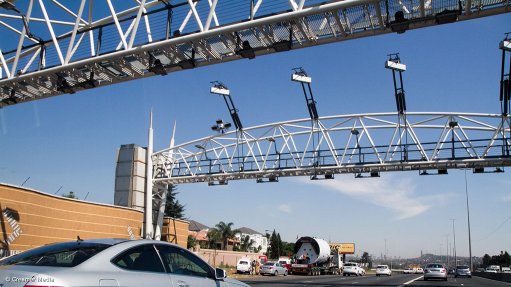
Photo by: Duane Daws
Should the e-toll user-pays system be abandoned in favour of a ringfenced fuel levy, motorists will have to pay an extra R3.69/ℓ of fuel, South African National Roads Agency Limited (Sanral) CEO Nazir Alli said on Wednesday.
This was similar to a statement made by Transport Minister Dipuo Peters on Tuesday, when she said motorists could pay up to R3.65/ℓ more for petrol, should a fuel levy replace e-tolling on Gauteng freeways.
“We will need R3.69/ℓ to [pay for and maintain] the Gauteng Freeway Improvement Project (GFIP) and to introduce additional traffic management measures, such as weighbridges.
“Give us the R3.69 – which will increase every year – and we can maintain the roads,” he told the Advisory Panel on the Socioeconomic Impact of E-tolls, in Pretoria.
His comments came on the second day of submissions made to the panel by the Department of Transport (DoT) and Sanral in defence of the GFIP’s pricing mechanism.
The advisory panel had been tasked by Gauteng Premier David Makhura to investigate the socioeconomic impact of the tolling system on the province and was expected to submit a final report and list of recommendations to the Gauteng provincial government by November 30.
While government had, through representations by Sanral and the DoT, submitted that the user-pays principle was the most effective way of paying for the construction and maintenance of the GFIP, certain panelists had challenged this position.
One panelist asserted that, through prior panel consultations with civil society and the private sector, it had become apparent that it was the price recovery mechanism, rather than the cost of the GFIP, that remained the bone of contention.
“Most people are not saying they don’t want to pay the tolls, but rather that it is an extra burden during difficult economic times.
“[The majority] understand that there is money that needs to be paid back, but it’s the modality that needs to be explained. People don’t understand how you are repaying it. It’s the elephant in the room,” she commented.
DoT acting director-general Mawethu Vilana countered that the user-pays principle was often incorrectly understood as government renouncing its funding responsibilities.
“All money, whether tax or user charges, comes from the public. All infrastructure is, therefore, funded by the public in one form or another,” he said, noting that this approach to infrastructure provision was a way of spreading the cost of provision “more fairly”.
He, meanwhile, added that the e-toll system should not be considered the commoditisation of Gauteng’s freeway network.
“We’re giving [Sanral] R10-billion a year to maintain the roads and these are funds sourced from the fiscus and are not charged for.
“Around 90% of GFIP users pay less than R200 a month [to use the tolled highway], so we’re ensuring that the lower-income groups don’t pay as much. It is, therefore, not a commoditisation of public services,” Vilana commented.
National Treasury was due to make submissions to the panel on Wednesday, but unexpectedly pulled out. It was unclear if they would participate at a later stage.
Sanral was expected to make additional representations on Thursday.